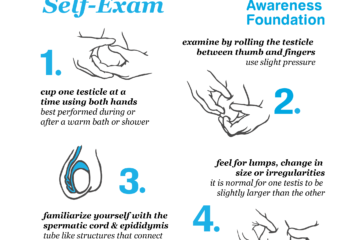
Prostate cancer is common cancer that affects men and is the top 10 leading cancer in India. It occurs when cells in the prostate gland grow uncontrollably and form a tumour that can spread to other parts of the body. While the exact cause of prostate cancer is unknown, age, family history, and ethnicity can increase a man’s risk of developing the disease. Understanding the symptoms of prostate cancer and knowing when to see a doctor is crucial for early detection and treatment. In this article, we will discuss the symptoms of prostate cancer, when to see a doctor, and the various treatment options available.
What is the prostate gland?
The prostate gland is a small gland located in the pelvis, between the bladder and the penis. It is a vital part of the male reproductive system and produces the fluid that carries sperm during ejaculation.
What is prostate cancer?
Prostate cancer occurs when cells in the prostate gland grow uncontrollably. Over time, these cells can form a tumour and spread to other body parts. While the exact cause of prostate cancer is unknown, age, family history, and ethnicity can increase a man’s risk of developing the disease.
Symptoms of Prostate Cancer
Early-stage prostate cancer often does not produce any symptoms. However, as cancer progresses, the following symptoms may appear:
- Urinary problems: Prostate cancer can cause problems with urination, such as difficulty starting or stopping urination, weak urine flow, or the need to urinate more often, especially at night.
- Blood in urine or semen: Prostate cancer can cause blood to appear in the urine or semen.
- Painful ejaculation: Some men with prostate cancer may experience pain during ejaculation.
- Pain in the back, hips, or pelvis: As prostate cancer spreads to other parts of the body, it can cause pain in the back, hips, or pelvis.
Causes of Prostate Cancer
The exact cause of prostate cancer is unknown, but there are several factors that may increase a man’s risk of developing the disease. These risk factors include:
- Age: Prostate cancer is rare in men under the age of 40, but the risk increases with age. The majority of cases are diagnosed in men over the age of 65.
- Family history: Men with a family history of prostate cancer are at a higher risk of developing the disease. The risk is even higher if the affected family member was diagnosed at a young age.
- Ethnicity: Prostate cancer incidence and mortality rates can vary widely among different ethnic and racial groups. In India, the incidence of prostate cancer is relatively low compared to other countries, and it is not considered a major public health concern. Regardless of ethnicity, it is important for all men to be aware of their risk for prostate cancer and to speak with their doctor about screening options. Early detection and treatment can improve outcomes and increase the chances of a full recovery.
- Obesity: Obese men have a higher risk of developing aggressive prostate cancer.
- Exposure to certain chemicals: Exposure to certain chemicals, such as pesticides, may increase the risk of developing prostate cancer.
- Hormonal factors: Testosterone, a male hormone, may play a role in the development of prostate cancer. Men who have high levels of testosterone or who take testosterone supplements may be at a higher risk.
It is important to note that having one or more risk factors does not necessarily mean that a man will develop prostate cancer. Likewise, some men without any risk factors may still develop the disease. Regular screening is important for all men, especially those with risk factors.
When to See a Doctor
If you experience any of the above symptoms, it is important to see a doctor as soon as possible. However, it is important to note that many of these symptoms can be caused by other conditions, such as an enlarged prostate or a urinary tract infection. Only a doctor can determine the cause of your symptoms.
Diagnosis of Prostate Cancer
If your doctor suspects prostate cancer, they may perform the following tests:
- Digital rectal exam (DRE): During a DRE, your doctor will insert a lubricated, gloved finger into your rectum to feel for any abnormalities in the prostate gland.
- Prostate-specific antigen (PSA) test: The PSA test measures the level of PSA in the blood. Elevated levels of PSA can indicate the presence of prostate cancer, but other conditions, such as an enlarged prostate or an infection, can also cause elevated PSA levels.
- Biopsy: If your doctor suspects prostate cancer based on the DRE and PSA test results, they may perform a biopsy. During a biopsy, a small piece of tissue is removed from the prostate gland and examined under a microscope for the presence of cancer cells.
Treatment of Prostate Cancer
The treatment of prostate cancer depends on several factors, including the stage of cancer, the patient’s overall health, and the patient’s personal preferences. Treatment options include:
- Active surveillance: In some cases, doctors may recommend active surveillance for low-risk prostate cancer. This involves regular monitoring of cancer to ensure it does not progress.
- Surgery: Surgery may be recommended to remove the prostate gland and any cancerous tissue.
- Radiation therapy: Radiation therapy uses high-energy radiation to kill cancer cells. It may be used alone or in combination with surgery.
- Hormone therapy: Hormone therapy may be recommended to block the production of testosterone, which can fuel the growth of prostate cancer cells.
- Chemotherapy: Chemotherapy uses drugs to kill cancer cells. It may be used in advanced cases of prostate cancer that have spread to other parts of the body.
Prostate cancer is a serious condition that can be life-threatening if not detected and treated early. It is important for men to be aware of the symptoms of prostate cancer and to seek medical attention if they experience any of them. Early detection through regular screening is key to successful treatment and a better prognosis. Treatment options for prostate cancer include active surveillance, surgery, radiation therapy, hormone therapy, and chemotherapy. If you are experiencing any symptoms or have concerns about prostate cancer, don’t hesitate to speak with your doctor or a urologist. With early detection and proper treatment, many men with prostate cancer can go on to live long, healthy lives.
Dr. Sumit Sharma is an experienced urologist, andrologist, and kidney transplant surgeon with over 20 years of clinical experience. He is the founder of the Department of Urology at multiple hospitals in Gurgaon and has established successful kidney transplant programs across the city.
Here are some frequently asked questions about Prostate cancer:
Q. How quickly does prostate cancer spread?
The speed at which prostate cancer spreads varies widely and depends on several factors, including the aggressiveness of cancer, the stage at which it is detected, and the individual’s overall health.
In many cases, prostate cancer grows slowly and may not spread beyond the prostate gland for many years. This type of cancer is known as “localized” or “low-risk” prostate cancer. It may never cause any symptoms or problems, and some men may die from other causes before cancer becomes a significant health issue.
However, some types of prostate cancer are more aggressive and can spread quickly to other parts of the body, such as the bones, liver, and lungs. This is known as “metastatic” or “advanced” prostate cancer. Once cancer has spread beyond the prostate gland, it becomes more difficult to treat and can be life-threatening.
It is important to note that even if prostate cancer has spread, it can still be treated, and many men with advanced prostate cancer can live for many years with good quality of life. Regular screening and early detection are key to identifying prostate cancer before it has a chance to spread, so if you are at risk, it is important to speak with your doctor about screening options.
Q. Who is the best urologist in Gurgaon?
Dr. Sumit Sharma is an experienced urologist, andrologist, and kidney transplant surgeon with over 20 years of clinical experience. He is the founder of the Department of Urology at multiple hospitals in Gurgaon and has established successful kidney transplant programs across the city.
Q. How long can you live with untreated prostate cancer?
The prognosis for untreated prostate cancer varies widely and depends on several factors, including the age and overall health of the individual, the stage and grade of cancer, and whether it has spread to other parts of the body.
It is important to note that untreated prostate cancer can have serious consequences, including damage to nearby tissues and organs, as well as the potential for cancer to spread to other parts of the body. Regular screening and early detection are key to identifying prostate cancer before it has a chance to spread and become more difficult to treat.
If you have been diagnosed with prostate cancer, it is important to speak with your doctor about treatment options and to work together to develop a personalized treatment plan that is right for you.




Greetings! Very useful advice in this particular article! Its the little changes that will make the biggest changes. Thanks for sharing!